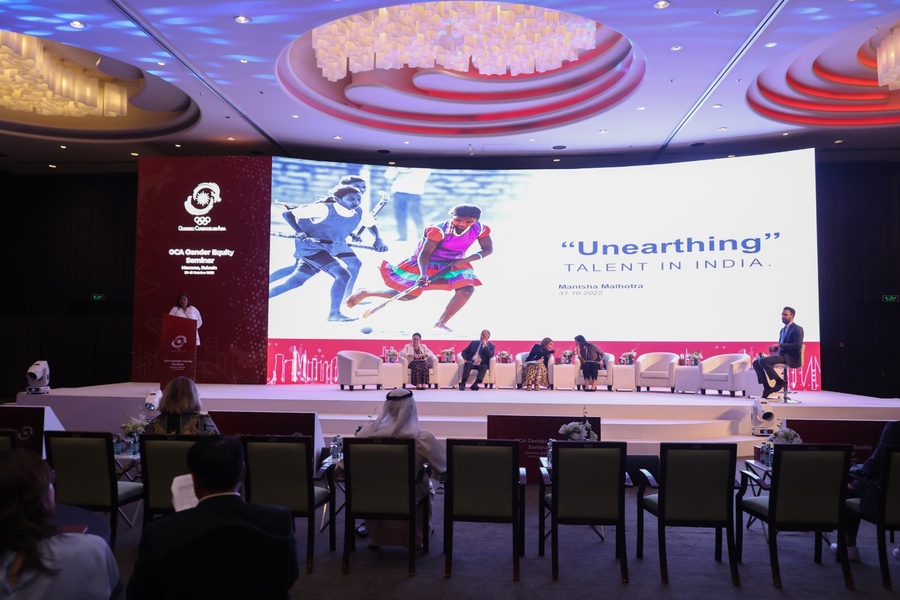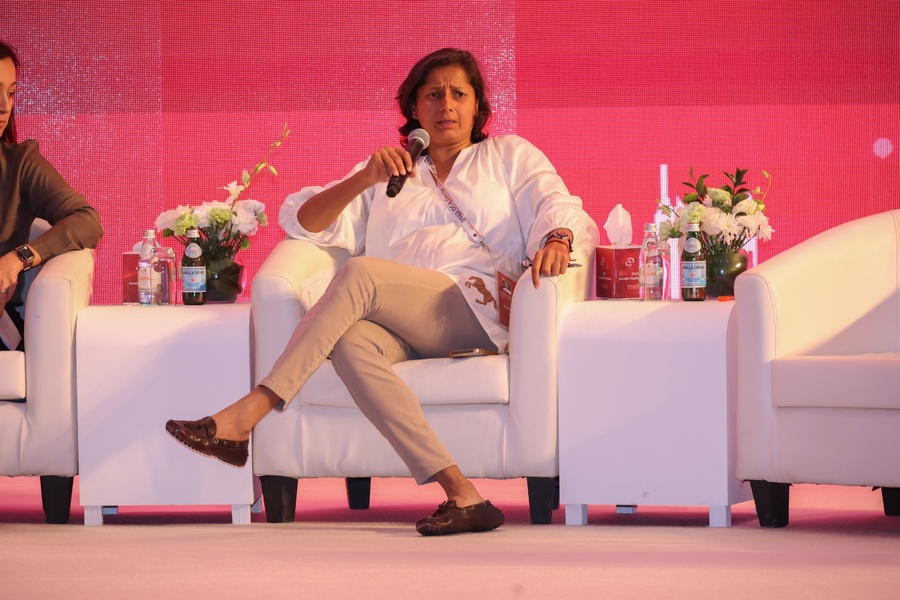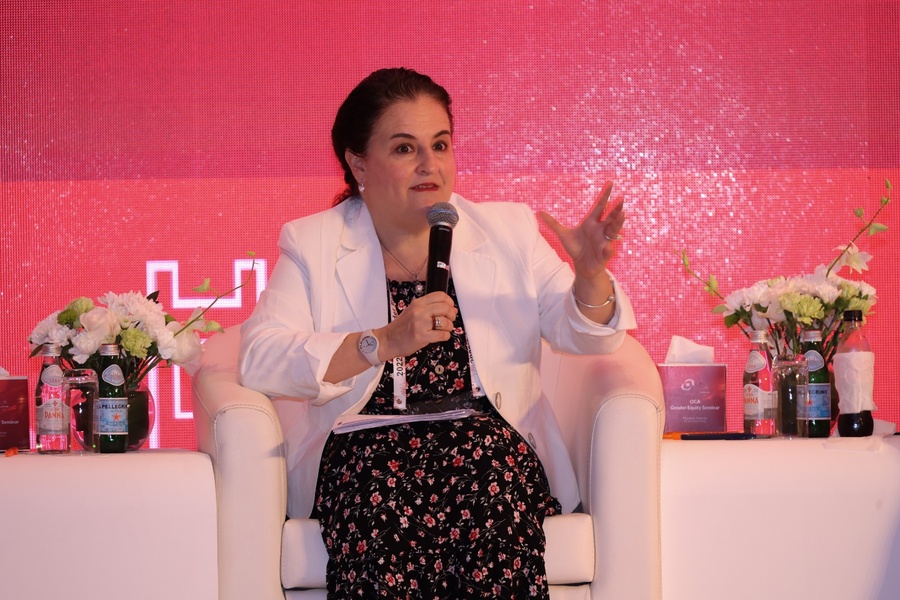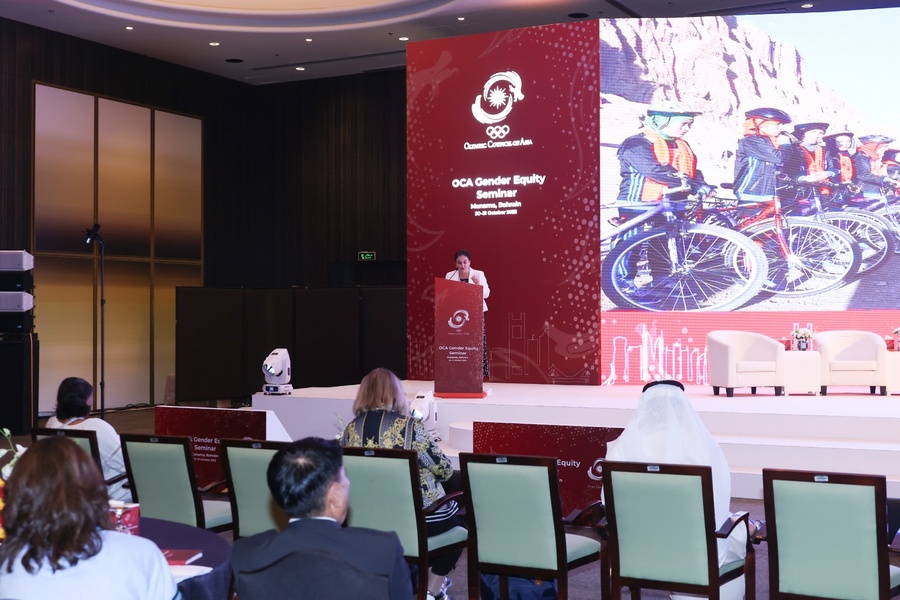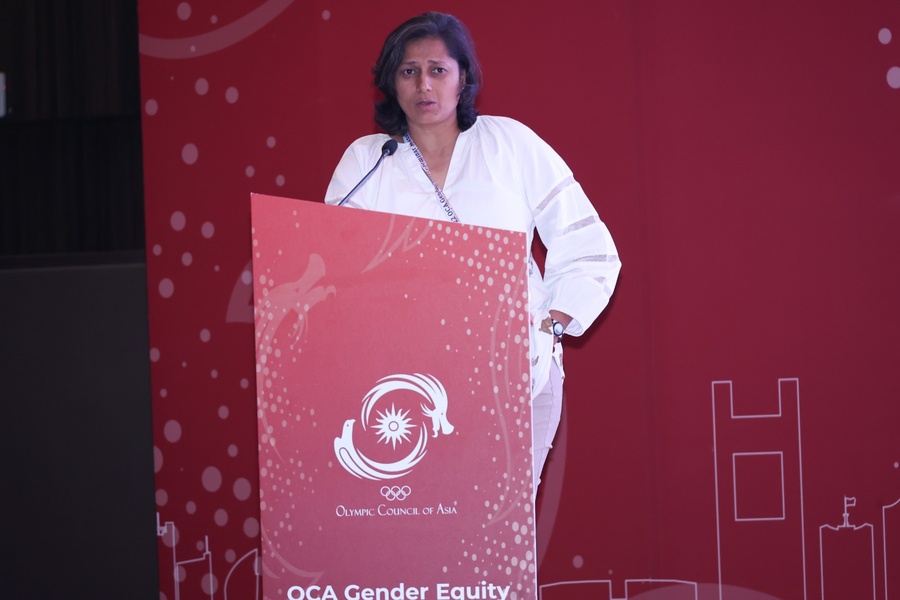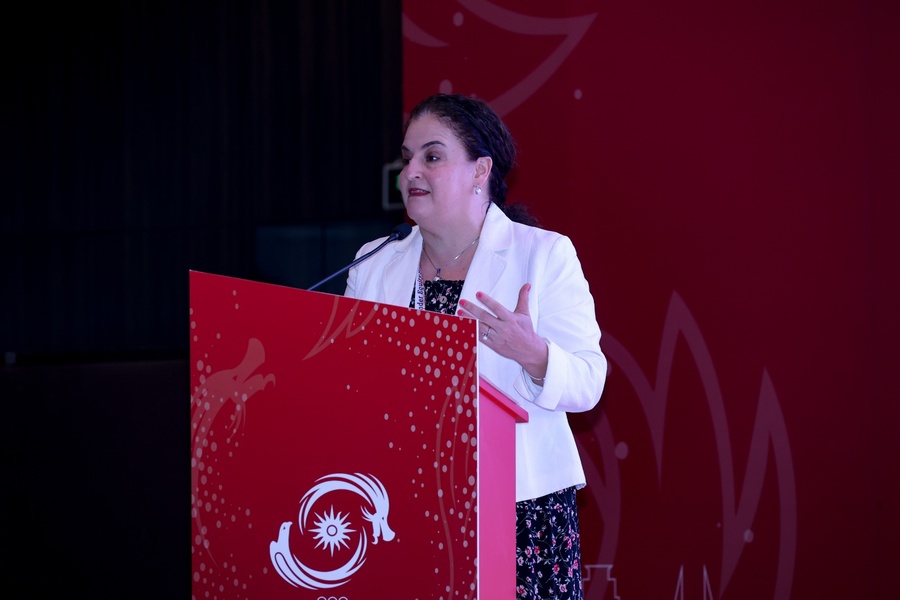Manama, Bahrain, October 31, 2022: ‘Think globally, act locally’ was the advice given by IOC Executive Board Member Prince Faisal bin Al-Hussein to Asian National Olympic Committees on Day Two of the OCA Gender Equity Seminar on Monday, October 31.
The topic of discussion before the 42 NOCs gathered at The Art Hotel and Resort in Manama was ‘How to create a Grassroots strategy’ so as to enhance gender equity.
Borrowing a catchphrase used by an international bank, Prince Faisal urged NOCs to think globally but act locally in implementing grassroots strategies, and reminding them to be adaptable to local conditions.
“You can’t use a cookie cutter approach. There is no simple solution because Asia is so diverse in cultures. As such there is no one size fits all answer and you have to adapt to local customs and culture,” said Prince Faisal, who is also the President of the Jordan Olympic Committee and OCA Executive Board Member.
“And you have to listen to the local communities for they are best positioned to tell you what is best for them. Communication has to be a two-way street,” he added.
Grassroots in India is where the magic starts according to panellist Manisha Malhotra, Head of Sports Excellence and Scouting, JSW Sports (India), and it has been fostered in a number of ways in the populous country - by the national government, state governments and private initiatives.
“I met Tokyo Olympics silver medallist wrestler Mirabai Chanu and she told me a great story of how during an annual festival Umang Lai, there is a sports event in every village and every kid takes part in it – athletics, football, foot hockey and so on. She said ‘that’s where the magic starts’,” related Malhotra.
In her presentation ‘Unearthing Talent in India’ Malhotra highlighted the success of the Haryana State Sports Policy launched in 2006.
“The rural state of Haryana is the undisputed leader of sports in India. At the Tokyo Olympics, India had a squad of around 100 athletes and 25 per cent came from Haryana, including six players in the women’s hockey team. When they finished fourth, I was sobbing,” Malhotra said.
Captained by Haryana-born Rani Rampal, the Indian women’s team reached the semi-finals at an Olympics for the first time.
Malhotra also pointed to the Government sponsored Khelo India programme which targeted children from 8-14 years with promising young talent given funding of US$8,200 annually, and initiatives by private enterprise including her own company as examples of India’s diverse grassroots strategies for sport.

